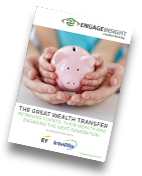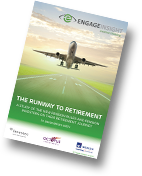The road to hell is paved with good intentions. For example the criminalisation of alcohol led to a crackdown on small breweries but also created a lucrative trade for the criminal gangs who could afford to produce it and sell it.
The famous ‘Cobra effect’ where the British governors in colonial India offered rewards for the culling of cobra’s only to see a black market in cobra farming and the fact that government dept.’s are encouraged to be wasteful and overspend budgets so they receive extra money rather than save means unintended consequences are everywhere and the UK regulator is not immune.
With the fact that the UK ‘massive passive’ market i.e. the low to middle wealth holders have effectively been ostracised from financial advice by the RDR means that the FCA and HMT have clubbed together to bring through the Financial Advice Market Review or RDR 2 to ensure the advice market is improved for consumers via more efficient and effective regulation.
The FAMR Focuses on 3 issues:
- What do consumers need and want from financial advice?
- Terminology is crucial i.e. what constitutes advice. Our blog on ‘walking like ducks’ may help here
- The consumer spotlight segmentation model categorises consumers based on behaviour and needs. Tags such as Starting out, stretched but resourceful and mature and savvy are used.
- Barriers to seeking advice are listed and our table below (which features in our forthcoming Robo-advice research paper) evidences solutions that can meet such barriers.
FAMR – Barriers to entry and potential solutions
| Barrier | Issue | Solutions |
| Price | Hard to judge the value | Automated investment strategies are now offered at low cost or for free. Simplified/focused advice can offer low costs and incentives to save (e.g. Nutmeg) |
| Lack of trust | Financial crises, poor conduct | Auto advice can aid rational choices and ease of access can facilitate engagement and trust. Advisers are still a trusted source, so ‘Cyber-advice’ can raise education and trust and bridge auto savings/invest with holistic planning |
| Knowledge | Low confidence in self efficacy | APP access to clear and simple features and benefits, align this with engagement solutions below |
| Engagement | Inertia and disinterest | Information, nudge and gamification features e.g. 7Imagine and WestPac Bank-True Potential Impulse save APPs. Martin Lewis Money Show-Money Savings Expert website and Personal Finance Education Group Pfeg school curriculum work TISA Savings and Investments Policy Project |
| Overconfidence | Know best | Outsource to a 3rd party professional – Advisers/Pension Wise/MAS |
| Access to face-to-face advice | Geographically challenged | Call centres and Guidance (e.g. PensionWise/Money Advice Service) Simplified/focused advice incorporating VOIP/phone a friend (e.g. Wealth Wizards) Adviser firm online Client Portal consolidates savings and investments |
| Internet and data sharing | Poor access and sensitive on data share | Call centre driven-online banking/client portals with Standard framework/Cyber data protection |
| Advice not applicable | Simple needs and low risks or effort for seeking advice disproportionate to the benefits | Online self invest/savings options/online banking/National Savings |
- Where are the advice gaps?
- The lack of attributed value to and price of advice
- A decrease in the number of advisers from 26,000 to 24,000
- Professional advisers now just focusing on the wealthy
- Strategies to close advice gaps
- Balance innovation and consumer protection through safe harbours and project innovate
- UK and EU regulation can form a support for increased harmonisation for treating customers fairly e.g. MiFID II and PRIPS
- Introducing a sing long stop to provide protection for advice firms
- Enhancing professional indemnity insurance and introducing a compensation fund
- New technologies that will enhance digital engagement for consumers such as automated investment strategies and advice
Many of these areas are highly relevant to the adviser and wealth management communities. The window is open until December 22nd for submissions thus we would urge market participants who want to influence good consumer outcomes to submit a response based on their experiences and views.
You can email the FAMR team at FAMRSecretariat@fca.org.uk













